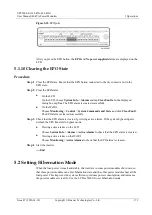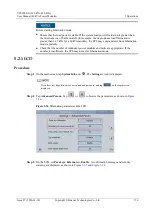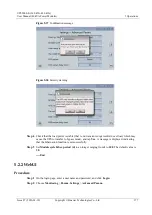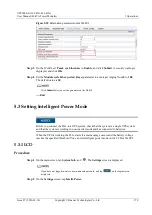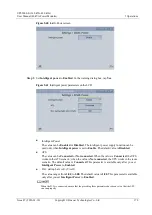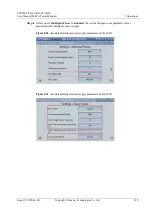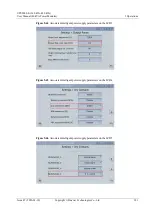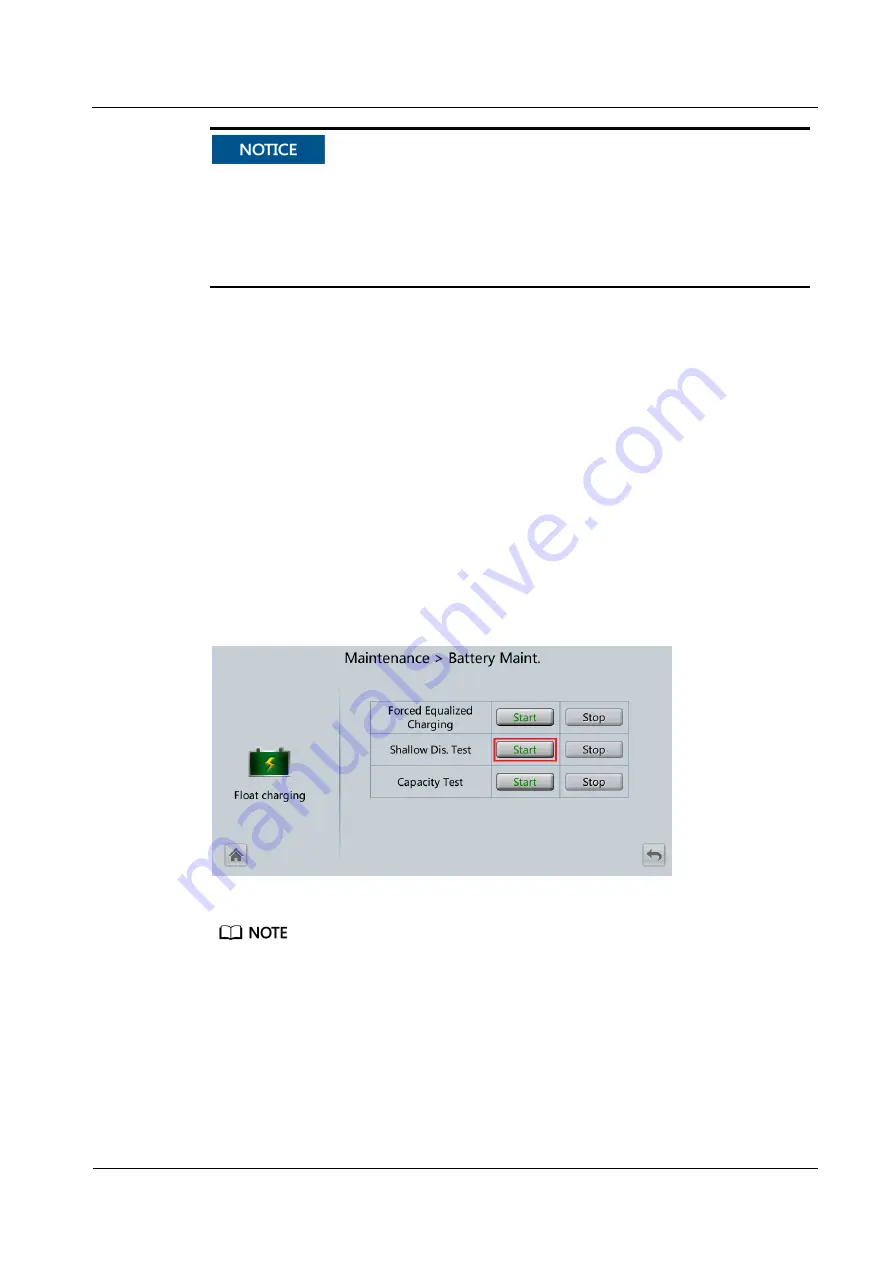
UPS5000-E-(360 kVA-480 kVA)
User Manual (40 kVA Power Modules)
5 Operations
Issue 07 (2020-01-10)
Copyright © Huawei Technologies Co., Ltd.
169
Before performing a shallow discharge test, ensure that:
The UPS works in normal mode with a load ratio fluctuation less than 10%.
The UPS generates no battery overtemperature, overvoltage, or overcurrent alarm. No
generator is connected to the UPS.
The mains, batteries, charger, and discharger are normal. No overload alarm is generated.
Automatic Shallow Discharge Test
Step 1
On the home screen of the LCD, choose
System Info
>
Settings
>
Battery Settings
and set
Sched. shallow dis. test
to
Enable
.
Step 2
Set
Sched. shallow dis. test time
and
Sched. shallow dis. test interval
as required. After
setting is complete, the system will perform automatic shallow discharge tests based on the
settings.
----End
Manual Shallow Discharge Test
Step 1
On the home screen of the LCD, choose
System Info
>
Maintenance
>
Battery Maint
.
Step 2
Tap
Start
next to
Shallow Dis. Test
to start a shallow discharge test.
Figure 5-27
Starting a shallow discharge test
When the battery test is complete, the test data is used as common test data. Record the data obtained
from the latest five tests.
The shallow discharge test automatically stops in any of the following cases:
The battery discharge capacity reaches the specified value (10%–50%, 20% by default).
The discharge voltage reaches the warning threshold (calculated in real time).
The load ratio fluctuation exceeds 10%.
An alarm is generated.
----End





















